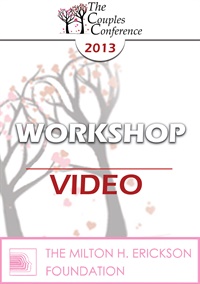CC13 Workshop 13 - Faculty Neuroception: How Trauma Distorts Perception and Displaces Spontaneous Social Behaviors with Defensive Reactions - Stephen Porges, PhD
- Average Rating:
- Not yet rated
- Topic Areas:
- Workshops | Trauma | Couples Therapy | Neuroscience
- Categories:
- Couples Conference | Couples Conference 2013
- Faculty:
- Stephen Porges, PhD
- Course Levels:
- Master Degree or Higher in Health-Related Field
- Duration:
- 1:55:37
- Format:
- Audio and Video
- Original Program Date:
- Apr 21, 2013
- License:
- Never Expires.
Tags: Couples Therapy Neuroscience
Description
Description:
The workshop will explore how faulty neuroception can have an impact on autonomic regulation and social behavior and how understanding the features that trigger different neuroceptive states (safety, danger, and life threat) can be used as a strategy of treatment.
Educational Objectives:
- Describe the features in social interactions and in the environment that trigger “neuroceptive” responses.
- Explain how physiological state can contribute to distortions of intent during social interactions.
*Sessions may be edited for content and to preserve confidentiality*
Credits
Faculty

Stephen Porges, PhD Related Seminars and Products
Stephen W. Porges, Ph.D (Psychology) is Distinguished University Scientist at Indiana University, Professor of Psychiatry at the University of North Carolina, and Professor Emeritus at the University of Illinois at Chicago and the University of Maryland. He is the former President of the Society for Psychophysiological Research and a recipient of a NIMH Research Scientist Development Award. He is the originator of the Polyvagal Theory and has published more than 250 peer-reviewed scientific papers across several disciplines.


